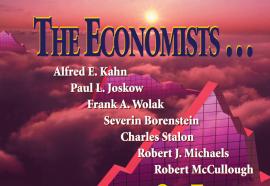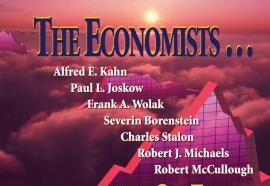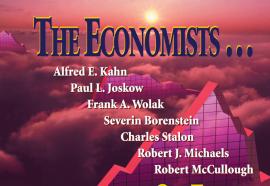Let's Be Rational About Hydrogen as a Vehicular Fuel
A response to “Forgetting Someone, Mr. Secretary?” Frontlines, Feb 1, 2002.
Mr. Stavros seems to fall into the same trap as so many of the major car manufacturers in assuming the need for a prohibitively costly infrastructure to supply this hydrogen when one already exists that offers by far the cheapest and environmentally vastly superior option—the natural gas transmission and distribution system.











